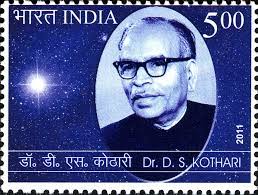The Kothari Commission, also known as the Indian Education Commission, was established in 1964 to examine the education system in India and suggest reforms to make it more efficient and effective. The commission was chaired by Dr. D.S. Kothari, a renowned physicist and educationist. The commission’s report, submitted in 1966, is considered a landmark in the history of education in India.

Table of Contents
Education system in India before the Kothari Commission
Before the Kothari Commission, the education system in India was inherited from the British colonial rule. It was inadequate, elitist, and divorced from the needs and aspirations of the masses. Education was not seen as a tool for development and social change but as a means of reproducing the existing social and economic hierarchy. There was a vast disparity in the quality of education provided in rural and urban areas, and a large section of the population, especially girls and children from marginalized communities, were denied access to education.
Challenges faced by the education system
India’s education system was facing multiple challenges, including inadequate infrastructure, shortage of teachers, lack of quality in education, and outdated curriculum. Moreover, the education system was not geared towards the needs of the economy and society, leading to a mismatch between education and employment opportunities. The education system also failed to promote critical thinking, creativity, and problem-solving skills, which were essential for the overall development of an individual and the nation.
Need for a commission to review the education system
The shortcomings of the education system necessitated a review of the entire system. It was felt that a comprehensive and systematic approach was required to bring about the desired reforms in the education system. Therefore, the Kothari Commission was appointed to undertake a detailed study of the education system in India and suggest measures for its improvement.
Objectives of the Kothari Commission
The Kothari Commission was tasked with the responsibility of reimagining the education system in line with the national goals and aspirations. The commission’s objectives were to make education more relevant to the needs of the society and economy, promote social and national integration, and democratize access to education. The commission aimed to provide a comprehensive and balanced education that would develop an individual’s physical, emotional, and intellectual faculties.
Key Recommendations of Kothari Commission
The Kothari Commission, officially known as the Education Commission 1964-66, was a landmark report on education reform in India. Here are the major recommendations of the Kothari Commission:
- Compulsory and free education for all children up to the age of 14.
- Establishment of a national system of education to ensure uniformity in standards and quality.
- Expansion of vocational and technical education to meet the growing needs of the economy.
- Strengthening of teacher education and training programs to improve the quality of teaching.
- Introduction of a common curriculum framework to provide a broad-based education to all students.
- Encouragement of research and innovation in education to promote new ideas and practices.
- Greater involvement of community and parents in the management of schools and colleges.
- Introduction of measures to promote social and national integration through education.
- Establishment of a national council for education to oversee and coordinate the implementation of educational policies.
- Adequate funding for education and the creation of a dedicated fund for education.
- Introduction of measures to improve the quality of education in rural areas and for disadvantaged groups.
- Introduction of measures to improve the efficiency and effectiveness of the education system.
Overall, the Kothari Commission aimed to transform education in India by making it more inclusive, relevant, and responsive to the needs of the country.
Important Links